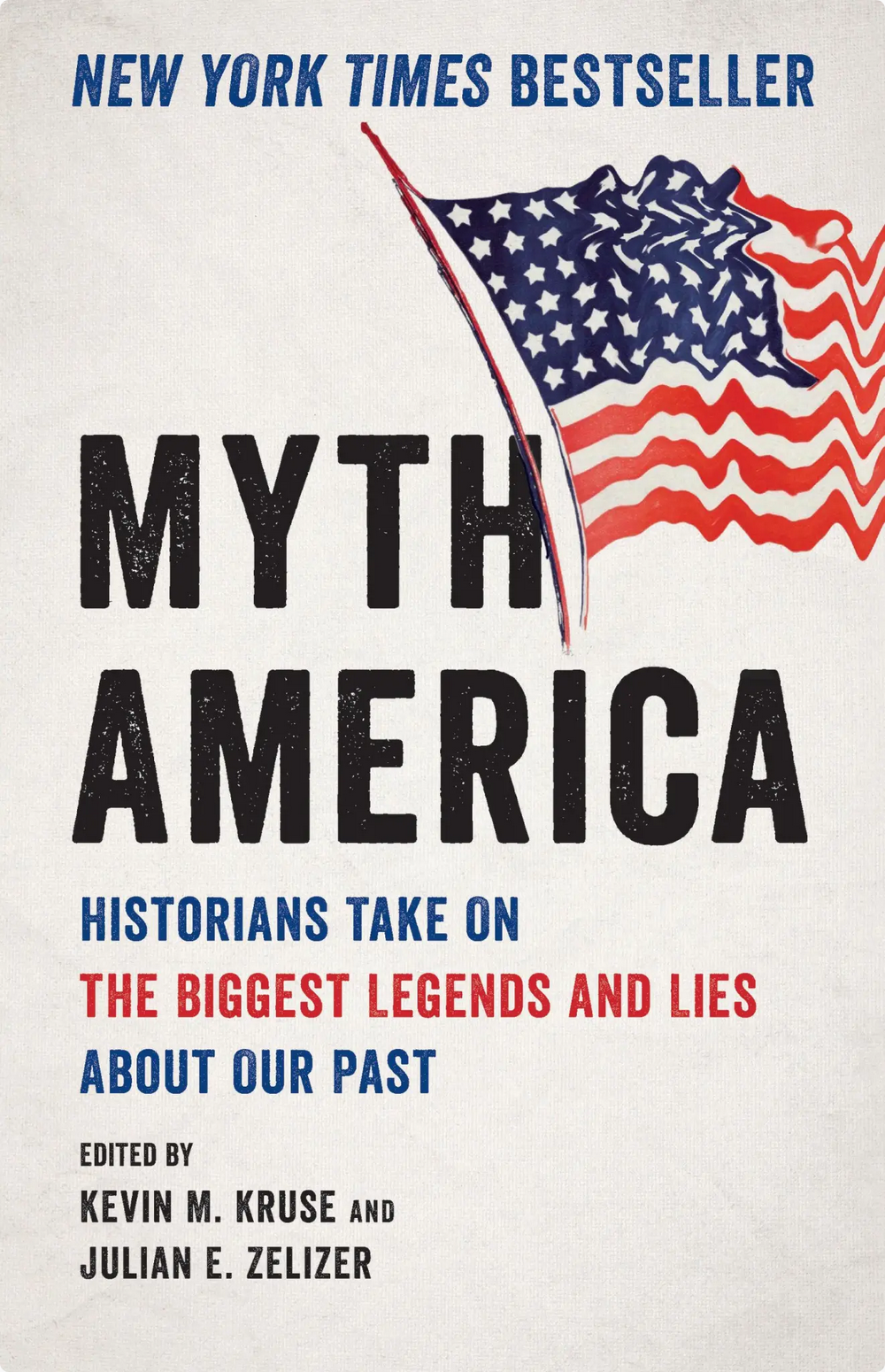If Americans can simply stick to the truth, Myth America implies, we might just defang the insurgent Trumpist right, suture our wounds, and start on the path toward national reconciliation. It’s a bit odd to read a group of historians make this claim, however, as others in the profession have spent the past half-century arguing that knowledge, truth, and expertise are constructed, contingent, and contested, and historical archives (and the study of history itself) often reflect processes of dispossession, extraction, and silencing. Who has the authority to narrate the past? Whose truths appear in dominant historical narratives, and whose get left out? “Facts” are hardly neutral, self-evident, or unassailable. Rather, they are often expressions of power.
It is unclear what exactly Kruse and Zelizer hope to accomplish through this attempt to “set the record straight.” Of course, the desire to promote evidence-based analysis is an understandable response to birtherism, COVID denialism, QAnon, “America First” ethno-nationalism, the “great replacement theory,” rising antisemitism, “big lie” election claims, vicious attacks on LGBTQ people, and Jan. 6–style insurrectionism—all developments that thrive on easily disproven conspiracy theories. Yet the relentless focus on countering false claims reveals the centrist liberal tendency to see historical falsehoods more as causes than outcomes of political change. For Kruse and Zelizer, the current threat to U.S. democracy appears to center less on systems than on bad actors, whether they be conservative TV personalities, MAGA politicians, or Russian bots, who promote inaccurate and often uncritical historical narratives. There is an ineffectual particularism—not to mention a whiff of elitism—in their implication that historical literacy, informational authority, and the consumption of “better” information can “save our democracy.”
The problem is power, not party or personality or “knowledge.” A better approach might be to question if any private citizen, entity, or corporation, regardless of intent, partisanship, or competency, should possess the power and resources necessary to promote the scale of historical fictions promulgated by the Koch network, various corporate super PACs, or Fox News. Yet despite the inclusion of a minority of essays that do identify the bipartisan, elite nature of our most persistent myths—American exceptionalism (David A. Bell), the demonization of immigrants (Erika Lee), and the idea that the U.S. isn’t an empire (Immerwahr)—Myth America ultimately suggests that misinformation must be exposed and corrected by experts, not drowned out or destroyed through mass struggle and a fundamental transformation of material relations. The result is a work that appeals far more to individual intellect than collective condition or action, meaning that while it works well at distinguishing historical fact from fiction, its political impact will likely be minimal. As we watch the historical profession die before our eyes, we ought to expect more from its crème de la crème.
